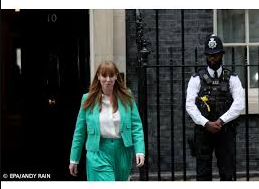
Senior officer dismissed from the Army after drunken misconduct during overseas trip.
Major General James Roddis, a respected Army officer with almost 30 years of service, has had his career destroyed after being found guilty of indecent behaviour while intoxicated in a karaoke bar during an overseas trip in April. The 53-year-old was sentenced to six months in prison, suspended for two years, and ordered to complete 30 days of rehabilitation along with 150 hours of unpaid work. He was also directed to pay £2,500 in compensation to the victim.
The incident occurred on the final night of a military delegation’s overseas visit, when Roddis, who had been drinking heavily, touched a woman’s hair and attempted to kiss her while in the karaoke bar. Some of the incident was filmed, showing the woman trying to signal to him to stop. Shortly after, he kissed her on the lips for about two seconds. The court martial heard that the woman immediately expressed her discomfort and later reported the incident to her husband.
This was not the first time Roddis had faced allegations of inappropriate behaviour. In 2023, he received a sanction and forfeited his seniority as a major general after complaints were made by two female civil servants about his misconduct during a similar overseas trip. Despite his distinguished military career, which included multiple awards and commendations, these previous incidents significantly contributed to the severity of his punishment.
In his defence, Roddis’s barrister, Jane Bickerstaff KC, explained that he had been struggling with alcohol dependency and used drinking as a means of coping with stress. However, she acknowledged the severe consequences of his actions.
An Army spokesman condemned Roddis’s behaviour, stressing that it “fell well below” the high standards expected of military personnel and that such behaviour would not be tolerated within the armed forces. The Army has pledged to take action to prevent future misconduct of this nature.

















